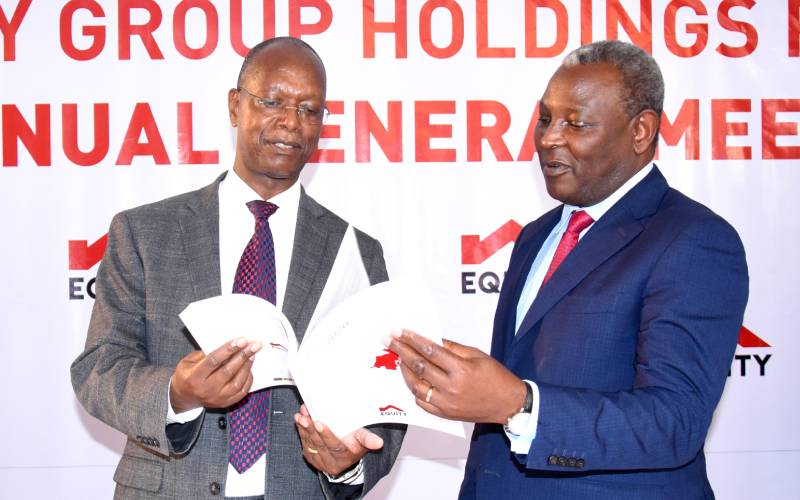×
The Standard e-Paper
Stay Informed, Even Offline

Equity Group Board Chairman, Prof. Isaac Macharia (left) and Equity Group Managing Director and CEO, Dr. James Mwangi (right) review the 2020 Integrated Report and Financial Statements during Equity Group Holdings Plc’s 17th Annual General Meeting. [Courtesy]
Equity Group Holdings Plc shareholders has passed resolutions to reinforce the governance structures of the Group, continue to diversify the Board composition, and assure investors of dividend pay-out every year as long as the Company posts profits.







